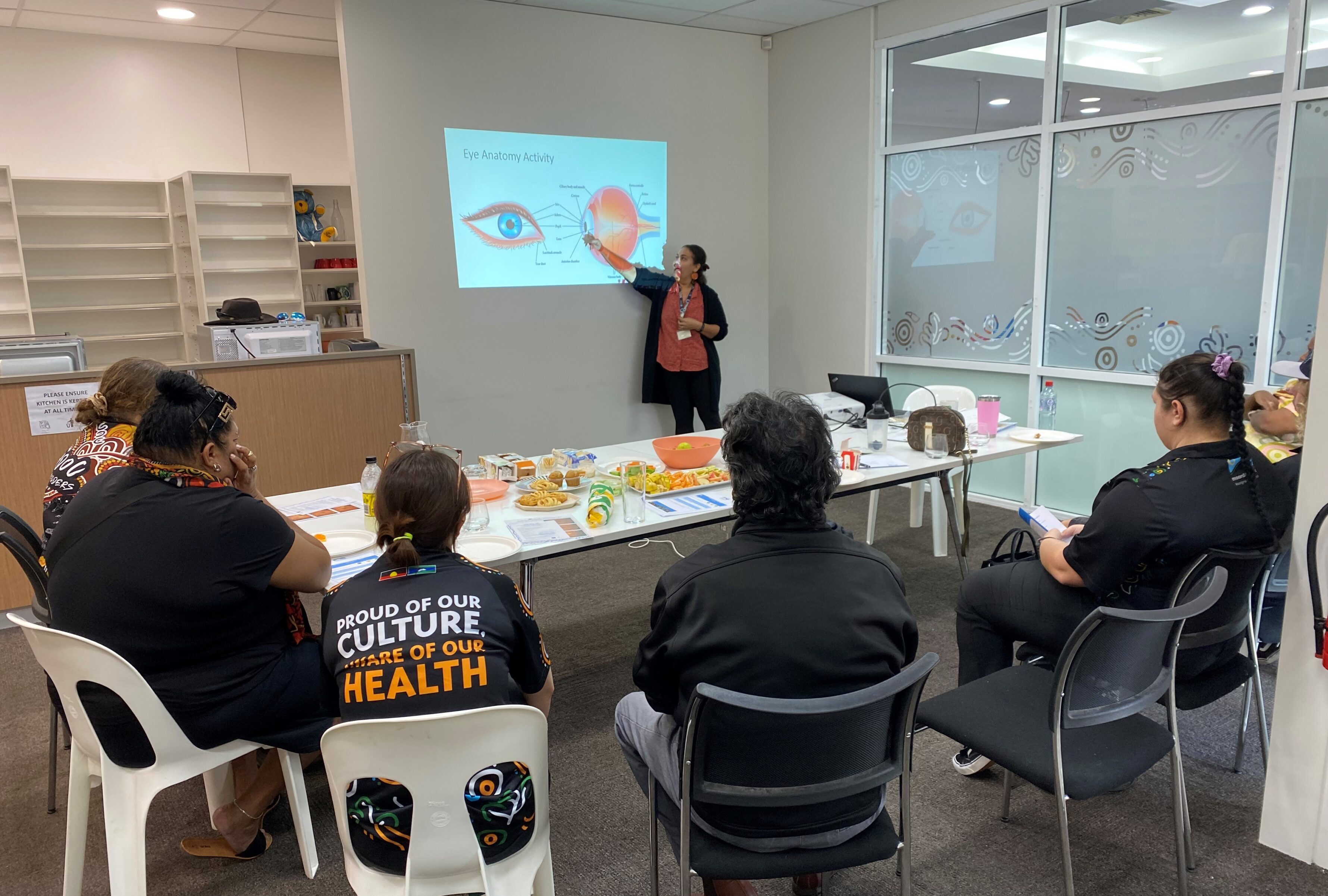Today is World Sight Day, a global event raising awareness about blindness and vision impairment. World Sight Day is an important date for our sector, as vision-related issues are the most common long-term health conditions reported by Aboriginal people. This year’s World Sight Day focus is on the importance of eye care for young people and children.
The eyes are an essential organ for experiencing the world around us through sight. Many common eye conditions are gradual, and it is critical to diagnose them as soon as possible so that early interventions can be implemented. Any untreated or misdiagnosed illness or injury may result in permanent damage and irreversible blindness, significantly impacting everyday life.
Despite the critical importance of eye health, many remote Aboriginal communities have reduced access to specialist services. From 2021 to 2022, The Australia Institute of Health and Welfare (AIHW) reported that only 12.9 per cent of First Nations people had an eye examination by an optometrist or ophthalmologist. This results in missed opportunities to identify conditions and administer treatments that may reduce or stop blindness. Vision-related issues continue to be the most common long-term health conditions reported by Aboriginal people, with prevalent examples being refractory error, diabetic retinopathy, cataracts, glaucoma, and trachoma—which may lead to trichiasis if reoccurring.
Refractory error, an eye disorder causing blurred vision, is the most likely to affect Aboriginal children and can act as a barrier to education if undiagnosed. When children struggle to read or see the board, they may lose focus and are less likely to pay attention in class, subsequently falling behind. Luckily, refractive errors are easy to detect and solve with glasses, but this requires an eye exam to be performed. While AIHW found Aboriginal children experience fewer issues with vision than non-Indigenous children, this trend reverses by adulthood.
To tackle this issue, annual 715 health checks are vital in keeping Aboriginal people healthy and strong at all ages. Healthcare workers conduct comprehensive assessments during these appointments, including checks for potential eye conditions. This ensures eye health is accessible, available, and affordable. Children are also entitled to free 715 health checks every nine to 12 months.
At the Aboriginal Health Council of Western Australia, our Eye Health Program Coordinator offers training for Aboriginal Health Workers and Practitioners to enhance their knowledge, skills, and confidence in performing eye assessments.
If you would like more information on eye care or are interested in AHCWA’s Eye Health Program, please email public.health@ahcwa.org

